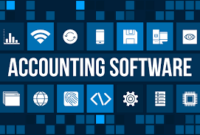Unveiling the Must-Have CRM Software Features for Business Success
In today’s highly competitive business landscape, building and maintaining strong relationships with customers is vital for success. This is where Customer Relationship Management (CRM) software comes into play. CRM software offers a comprehensive suite of features and functionalities designed to streamline processes and enhance customer interactions. In this article, we will delve into the essential CRM software features that businesses should consider for effective customer relationship management.
I. Introduction
A. Define CRM (Customer Relationship Management) software and its importance
CRM software refers to a technology solution that enables businesses to manage their interactions and relationships with customers effectively. It serves as a centralized hub for storing and organizing customer data, providing businesses with a holistic view of their customers and enabling personalized interactions. Implementing CRM software can have a profound impact on business operations and customer satisfaction.
B. Highlight the role of CRM software in managing customer relationships
CRM software plays a crucial role in managing customer relationships by providing tools and functionalities that streamline processes, automate tasks, and improve overall customer interactions. It allows businesses to gather valuable customer information, track interactions, and gain insights that can be leveraged to deliver personalized experiences and tailored solutions. By fostering better communication and collaboration, CRM software enhances customer engagement and satisfaction.
II. Contact and Lead Management Features
A. Centralized contact database
One of the fundamental features of CRM software is a centralized contact database. This feature allows businesses to store and manage customer contact information, including names, addresses, phone numbers, and email addresses, in one accessible location. With a centralized contact database, businesses can easily access and update customer details, ensuring accurate and up-to-date information for effective communication.
B. Lead tracking and management
CRM software enables businesses to track and manage leads throughout the customer lifecycle. It provides tools to capture and organize lead information, assign leads to sales representatives, track their progress, and nurture them through targeted marketing campaigns. By effectively managing leads, businesses can maximize conversion rates and increase revenue.
C. Segmentation and targeting capabilities
CRM software offers segmentation and targeting capabilities, allowing businesses to group customers based on specific criteria such as demographics, purchase history, or behavior. This feature enables businesses to tailor their marketing and communication efforts to specific customer segments, delivering more personalized and relevant messages. By targeting the right audience with the right content, businesses can improve engagement and conversions.
III. Sales and Pipeline Management Features
A. Opportunity tracking and forecasting
CRM software provides features for tracking sales opportunities and forecasting future revenue. It allows businesses to monitor the progress of sales opportunities, track key metrics such as deal size and probability of closure, and generate accurate sales forecasts. By gaining visibility into the sales pipeline, businesses can make informed decisions and prioritize their efforts for improved sales performance.
B. Sales process automation
CRM software automates various sales processes, eliminating manual tasks and improving efficiency. It offers features such as automated lead assignment, follow-up reminders, and email templates, enabling sales teams to focus on building relationships and closing deals rather than administrative work. By automating repetitive tasks, businesses can streamline their sales processes and drive productivity.
C. Deal and revenue management
CRM software facilitates effective deal and revenue management by providing tools to track and manage deals, calculate sales revenue, and generate accurate sales reports. This feature allows businesses to monitor the performance of their sales team, identify bottlenecks, and optimize their sales strategies. By gaining insights into deal status and revenue generation, businesses can make data-driven decisions to accelerate growth.
IV. Customer Communication and Interaction Features
A. Email integration and tracking
CRM software integrates with email systems, enabling businesses to manage customer communication seamlessly. It allows users to send and receive emails directly within the CRM system, track email interactions, and link them to relevant customer records. By centralizing email communication, businesses can ensure timely and consistent follow-ups, improving customer satisfaction and response rates.
B. Call logging and recording
CRM software offers call logging and recording features, empowering businesses to capture and store call details for future reference. It allows sales and support teams to log call activities, record important conversations, and attach them to customer profiles. This feature facilitates accurate note-taking, reduces the risk of information loss, and enhances collaboration among team members.
C. Social media integration and monitoring
CRM software integrates with social media platforms, enabling businesses to monitor and engage with customers across social channels. It provides tools for tracking social media mentions, comments, and messages, allowing businesses to respond promptly and manage their online reputation effectively. By integrating social media into CRM processes, businesses can leverage social insights and deliver personalized social interactions.
V. Reporting and Analytics Features
A. Customizable dashboards and reports
CRM software offers customizable dashboards and reporting features that provide real-time insights into key performance indicators (KPIs). Businesses can customize dashboards to display metrics and reports relevant to their specific needs, allowing them to monitor progress, identify trends, and make data-driven decisions. Customizable dashboards and reports empower businesses to measure success and optimize their strategies.
B. Performance tracking and metrics
CRM software enables businesses to track and measure the performance of various sales and marketing activities. It provides metrics such as lead conversion rates, customer acquisition costs, and customer lifetime value, allowing businesses to evaluate the effectiveness of their efforts. By tracking performance metrics, businesses can identify areas for improvement and refine their strategies to achieve better results.
C. Data visualization and insights
CRM software offers data visualization capabilities, presenting complex data in easy-to-understand charts, graphs, and visual representations. This feature allows businesses to gain valuable insights from their customer data, identify patterns and trends, and uncover hidden opportunities. Data visualization empowers businesses to communicate insights effectively and make informed decisions.
VI. Integration Capabilities
A. Integration with email, calendars, and productivity tools
CRM software integrates with popular email platforms, calendars, and productivity tools, ensuring seamless data flow and eliminating manual data entry. Integration with email enables businesses to sync email communication, calendar integration facilitates scheduling and task management, and productivity tool integration enhances overall efficiency. By integrating with essential tools, CRM software becomes a central hub for managing customer interactions and streamlining workflows.
B. Integration with marketing automation and customer support systems
CRM software integrates with marketing automation and customer support systems, enabling businesses to align their marketing, sales, and support efforts. Integration with marketing automation tools allows businesses to automate targeted marketing campaigns based on customer data, while integration with customer support systems ensures smooth collaboration and knowledge sharing between sales and support teams. By integrating these systems, businesses can deliver a consistent
and personalized customer experience.
C. Integration with third-party applications and APIs
CRM software provides integration capabilities with third-party applications and APIs, allowing businesses to extend the functionality of their CRM system. Integration with third-party applications, such as accounting software or project management tools, enables businesses to streamline workflows and eliminate data silos. The availability of APIs allows developers to customize and build upon the CRM software, tailoring it to the unique needs of the business.
VII. Mobile Access and Remote Connectivity Features
A. Mobile CRM app for on-the-go access
CRM software offers mobile CRM applications that enable users to access critical customer data and functionality on their mobile devices. Mobile CRM apps allow sales representatives to access customer information, update records, and manage tasks while on the go, improving productivity and responsiveness. With mobile access, businesses can stay connected with customers and manage relationships from anywhere.
B. Offline access and synchronization
CRM software provides offline access and synchronization capabilities, ensuring uninterrupted access to customer data even in areas with limited or no internet connectivity. Users can continue working offline and sync their changes with the CRM system once they regain internet access. Offline access and synchronization enable businesses to maintain productivity and access vital customer information regardless of location or network availability.
C. Remote collaboration and communication
CRM software facilitates remote collaboration and communication among team members, regardless of geographical location. It provides features such as document sharing, team collaboration spaces, and real-time messaging, enabling seamless communication and collaboration. Remote collaboration capabilities empower businesses to work together effectively, regardless of physical barriers, and ensure a unified approach to customer relationship management.
VIII. Workflow Automation Features
A. Task and activity management
CRM software offers task and activity management features that allow businesses to assign, track, and prioritize tasks within the system. It provides automated task assignment, reminders, and notifications, ensuring that team members stay on top of their responsibilities. Task and activity management streamline workflows, improve accountability, and enhance productivity.
B. Automated notifications and reminders
CRM software automates notifications and reminders, keeping users informed about important activities, deadlines, and follow-ups. Automated notifications and reminders help businesses stay organized and ensure that critical tasks are not overlooked. By automating these reminders, CRM software reduces the chances of missed opportunities and improves overall efficiency.
C. Workflow customization and process automation
CRM software allows businesses to customize workflows and automate repetitive processes. It provides tools to map out and configure workflows based on specific business requirements. By automating processes, businesses can streamline their operations, reduce manual errors, and save valuable time and resources.
IX. Security and Data Protection Features
A. User access control and permissions
CRM software offers robust user access control and permissions, ensuring that sensitive customer data is only accessible to authorized individuals. It provides role-based access control, allowing businesses to define user roles and permissions based on their responsibilities. User access control and permissions safeguard customer data and maintain confidentiality.
B. Data encryption and privacy measures
CRM software employs data encryption and privacy measures to protect sensitive customer information from unauthorized access. It ensures that data is encrypted both in transit and at rest, providing an additional layer of security. By implementing data encryption and privacy measures, CRM software mitigates the risk of data breaches and ensures compliance with data protection regulations.
C. Backup and disaster recovery capabilities
CRM software offers backup and disaster recovery capabilities to safeguard customer data from loss or system failures. It regularly backs up data and provides mechanisms for restoring data in the event of a disaster or technical issue. Backup and disaster recovery capabilities ensure data integrity and business continuity.
X. Scalability and Customization Features
A. Scalable architecture to accommodate growth
CRM software is built on a scalable architecture that allows businesses to accommodate growth and scale their CRM processes as their customer base expands. Scalable CRM software ensures that businesses can manage increasing amounts of data and support growing user bases without compromising performance or usability.
B. Customizable fields, layouts, and workflows
CRM software provides customizable fields, layouts, and workflows, enabling businesses to tailor the CRM system to their specific needs. Customization features allow businesses to adapt the CRM software to their unique processes and capture the data points that matter most to their operations. By customizing fields, layouts, and workflows, businesses can optimize their CRM system for maximum efficiency.
C. API and developer tools for customization and integration
CRM software offers APIs and developer tools that allow businesses to further customize and integrate the CRM system with other applications or extend its functionality. APIs enable seamless integration with third-party systems, while developer tools provide the flexibility to create custom features or applications on top of the CRM software. API and developer tools empower businesses to tailor the CRM system to their specific requirements.
XI. Usability and User Experience Features
A. Intuitive user interface
CRM software prioritizes usability and offers an intuitive user interface that is easy to navigate and understand. A user-friendly interface reduces the learning curve and enables users to quickly adopt and leverage the CRM software’s features. An intuitive user interface ensures that businesses can maximize the benefits of CRM software without excessive training or support.
B. User-friendly navigation and search functionality
CRM software provides user-friendly navigation and search functionality that allows users to find the information they need quickly. It offers intuitive menus, search bars, and filters to facilitate efficient data retrieval. User-friendly navigation and search functionality enhance productivity and enable users to access critical customer data with ease.
C. Training and support resources
CRM software vendors often provide training and support resources to help businesses make the most of their CRM software. These resources can include documentation, tutorials, webinars, and dedicated support channels. Training and support resources ensure that businesses have the necessary knowledge and assistance to effectively utilize CRM software and resolve any issues that may arise.
XII. Conclusion
A. Recap the importance of CRM software features
CRM software features play a crucial role in managing customer relationships effectively. From contact and lead management to sales and pipeline management, customer communication, reporting and analytics, integration capabilities, mobile access, workflow automation, security and data protection, scalability and customization, and user experience features—each component contributes to a holistic CRM solution that drives business success.
B. Emphasize the value of selecting CRM software with essential features
Choosing CRM software that offers essential features is key to unlocking the full potential of customer relationship management. By selecting CRM software with the right set of features, businesses can streamline processes, improve customer interactions, and gain valuable insights to drive growth and profitability.
C. Encourage businesses to assess their needs and choose CRM software that aligns with their requirements
Every business has unique needs when it comes to CRM software. To make an informed decision,
businesses should assess their specific requirements, consider the features discussed in this article, and choose CRM software that aligns with their needs and goals. By selecting the right CRM software, businesses can optimize their CRM processes and pave the way for long-term success.



